Table of Contents
Table of Contents
- Understanding Nepal’s Hotel Tax Structure
- Administrative Process and Required Bodies
- Financial Planning Framework
- Banking Process and Requirements
- FDI and Local Investment Models
- Letter of Credit (LOC) and Loan Processes
- Step-by-Step Implementation Guide
- Financial Models and Projections
- Frequently Asked Questions
Understanding Nepal’s Hotel Tax Structure
The taxation landscape for 5-star hotels in Nepal operates under a comprehensive framework that encompasses multiple tax categories. VAT is levied at a standard rate of 13% on most goods and services, while the standard corporate tax rate in Nepal for FY 2081/82 remains at 25%.
Current Tax Rates for Hotels (2025)
| Tax Type | Rate | Application | Threshold |
|---|---|---|---|
| Value Added Tax (VAT) | 13% | Hotel services, food & beverage | NPR 2 million annual turnover |
| Corporate Income Tax | 25% | Hotel company profits | All registered entities |
| Withholding Tax | 1.5% | Service payments | Per transaction |
| Excise Duty | 10-15% | Alcoholic beverages | Per unit sold |
| Property Tax | 0.1-1% | Hotel property value | Annual assessment |
VAT replaces the old Sales Tax, Contract Tax, Hotel Tax and Entertainment Tax, creating a unified taxation system that simplifies compliance for hotel operators.
Tax Benefits for Hotel Industry
Nepal provides significant incentives for hotel investments:
- Income Tax Exemption: Up to 7 years for hotels in rural areas
- VAT Exemption: On capital goods imports for hotel construction
- Depreciation Benefits: Accelerated depreciation on hotel equipment
- Partial Tax Holiday: 50% reduction in first operational year
Administrative Process and Required Bodies
The administrative framework for hotel taxation involves multiple government agencies working in coordination to ensure compliance and facilitate business operations.
Key Administrative Bodies
1. Inland Revenue Department (IRD)
- Primary Function: Tax collection and compliance monitoring
- Services: Tax registration, return filing, audit coordination
- Contact Requirements: Monthly VAT returns, annual income tax returns
2. Department of Industry (DOI)
- Role: Investment approval and industry registration
- FDI Approval: The Department of Industry approves Foreign Investment
- Minimum Investment: NPR 20 Million or roughly $150,000 USD
3. Nepal Rastra Bank (NRB)
- Function: Foreign exchange regulation and approval
- Requirement: Providing Statutory Notice to Nepal Rastra Bank for infusion of foreign capital
4. Investment Board Nepal (IBN)
- Purpose: Large-scale investment facilitation
- Threshold: Projects above NPR 6 billion
- Services: One-stop service for mega projects
Administrative Process Flow
Application Submission → Document Verification → Technical Review →
Financial Assessment → Environmental Clearance → Final Approval →
Tax Registration → Operational License
Financial Planning Framework
Successful hotel operations require comprehensive financial planning that accounts for all taxation obligations and operational requirements.
Revenue Projection Model
| Revenue Stream | Year 1 | Year 2 | Year 3 | Year 4 | Year 5 |
|---|---|---|---|---|---|
| Room Revenue | 60% | 70% | 80% | 85% | 90% |
| F&B Revenue | 45% | 60% | 75% | 80% | 85% |
| Other Services | 30% | 50% | 70% | 80% | 85% |
| Total Occupancy | 45% | 65% | 75% | 82% | 87% |
Tax Liability Calculation
Monthly VAT Calculation:
- Gross Revenue × 13% = VAT Liability
- Input VAT Credit (on purchases) = Deductible Amount
- Net VAT Payable = VAT Liability – Input Credit
Annual Income Tax Planning:
- Gross Profit calculation after operational expenses
- Depreciation deductions on hotel assets
- Interest expense deductions on loans
- Taxable income × 25% = Income Tax Liability
Cash Flow Management
Hotels must maintain adequate cash flow to meet tax obligations:
| Month | VAT Payment | WHT Payment | Advance Tax | Total Tax Outflow |
|---|---|---|---|---|
| Monthly | 13% of sales | 1.5% services | Quarterly | Variable |
| Quarterly | – | – | 25% estimated | Significant |
| Annual | – | – | Final settlement | Major |
Banking Process and Requirements
The banking sector plays a crucial role in hotel financing and daily operations, with specific requirements for tax compliance and financial management.
Bank Account Requirements
Operational Accounts
- Current Account: Daily operations and tax payments
- Savings Account: Reserve funds and emergency liquidity
- Foreign Currency Account: For international transactions
- Escrow Account: Construction phase payments
Documentation Required
- Company registration certificate
- Tax registration (PAN/VAT)
- Board resolution for account opening
- Authorized signatory details
- Initial deposit (minimum NPR 100,000)
Banking Services for Hotels
| Service Type | Purpose | Documentation | Processing Time |
|---|---|---|---|
| Term Loan | Property acquisition | Feasibility study, collateral | 45-60 days |
| Working Capital | Daily operations | Cash flow projections | 15-30 days |
| Trade Finance | Import financing | LC opening, import permits | 7-15 days |
| Foreign Exchange | Currency conversion | NRB approval for large amounts | 1-3 days |
Tax Payment Mechanisms
Banks facilitate tax payments through:
- Online Banking: Direct tax payment to IRD accounts
- Standing Instructions: Automatic VAT payment monthly
- Bulk Payments: Employee tax deductions
- International Transfers: Dividend repatriation tax
FDI and Local Investment Models
Nepal’s hotel industry welcomes both foreign and domestic investment, with specific regulations governing each category.
Foreign Direct Investment (FDI) Framework
Foreign Investors have the Legal Capacity to invest 100% in the Hotel/Hospitality Project, making Nepal an attractive destination for international hotel chains.
FDI Process Flow
1. Project Proposal Submission
2. DOI Initial Review (15 days)
3. Environmental Impact Assessment
4. NRB Foreign Exchange Approval
5. Company Registration
6. Tax Registration (PAN/VAT)
7. Operational License
8. Construction/Operation Commencement
Investment Requirements
| Investment Category | Minimum Amount | Approval Authority | Processing Time |
|---|---|---|---|
| Small Scale FDI | NPR 20 million | Department of Industry | 30 days |
| Medium Scale FDI | NPR 500 million | Department of Industry | 45 days |
| Large Scale FDI | NPR 6 billion+ | Investment Board Nepal | 60 days |
Local Investment Model
Domestic investors benefit from simplified procedures and reduced documentation requirements:
Advantages for Local Investors
- Faster Approval: 15-day processing for standard applications
- Lower Documentation: Reduced paperwork requirements
- Tax Incentives: Additional benefits for rural area investments
- Financing Access: Easier bank loan approval
Investment Structure Options
Sole Proprietorship:
- Single owner structure
- Unlimited liability
- Direct tax implications
- Simplified registration
Private Limited Company:
- Limited liability protection
- Separate legal entity
- Corporate tax rates applicable
- Professional management structure
Partnership Firm:
- Shared ownership and responsibility
- Pass-through taxation
- Joint and several liability
- Flexible profit sharing
Letter of Credit (LOC) and Loan Processes
Hotels require substantial financing for construction, equipment, and working capital, making understanding of credit facilities essential.
Letter of Credit Services
LOCs are primarily used for equipment import and international trade:
Import LOC for Hotel Equipment
| Equipment Category | Typical LOC Amount | Processing Time | Required Documents |
|---|---|---|---|
| Kitchen Equipment | $100,000-500,000 | 7-10 days | Pro-forma invoice, import license |
| Room Furnishing | $200,000-800,000 | 5-7 days | Supplier agreement, specifications |
| IT Systems | $50,000-200,000 | 3-5 days | Technical specifications, warranty |
| Spa Equipment | $75,000-300,000 | 7-10 days | Health dept. clearance, import permit |
LOC Process Steps
- Application Submission: Complete documentation to issuing bank
- Credit Assessment: Bank evaluates applicant’s creditworthiness
- Margin Deposit: 20-100% margin depending on credit rating
- LOC Issuance: Bank issues LOC to beneficiary bank
- Document Processing: Shipping documents verification
- Payment Settlement: Final payment upon document compliance
Loan Products for Hotels
Term Loans for Hotel Development
Construction Loan:
- Purpose: Hotel building construction
- Amount: Up to 80% of project cost
- Interest Rate: 10-14% per annum
- Tenure: 15-20 years
- Moratorium: 2-3 years during construction
Equipment Financing:
- Purpose: Machinery and equipment purchase
- Amount: Up to 70% of equipment value
- Interest Rate: 12-16% per annum
- Tenure: 5-10 years
- Security: Equipment hypothecation
Working Capital Facilities
| Facility Type | Purpose | Limit Calculation | Interest Rate | Tenure |
|---|---|---|---|---|
| Cash Credit | Daily operations | 25% of annual turnover | 11-15% | Renewable annually |
| Overdraft | Short-term needs | Based on deposits/security | 10-14% | On demand |
| Bill Discounting | Payment acceleration | Actual bill amounts | 9-13% | Bill maturity period |
Loan Processing Requirements
Financial Documents
- Audited financial statements (3 years)
- Cash flow projections (5 years)
- Management accounts (current year)
- Tax clearance certificates
Legal Documents
- Company incorporation certificate
- Memorandum and Articles of Association
- Board resolutions for loan application
- Power of attorney for authorized persons
Technical Documents
- Detailed project report
- Architect’s drawings and approvals
- Environmental clearance certificate
- Fire safety and building permits
Step-by-Step Implementation Guide
This comprehensive guide walks through the entire process of establishing a 5-star hotel in Nepal while ensuring full tax compliance.
Phase 1: Pre-Investment Planning (Months 1-3)
Market Research and Feasibility
- Conduct market analysis for location selection
- Prepare detailed feasibility study
- Assess competition and demand patterns
- Calculate ROI projections with tax implications
Legal Structure Decision
- Choose between FDI or local investment
- Select appropriate business structure
- Understand tax implications of each option
- Consult with legal and tax advisors
Phase 2: Regulatory Approvals (Months 4-8)
Investment Approval Process
For FDI Projects:
- Submit application to Department of Industry
- Provide detailed project proposal
- Submit environmental impact assessment
- Obtain NRB approval for foreign currency
- Complete company registration process
For Local Projects:
- Register company with Company Registrar
- Obtain investment approval from DOI
- Complete environmental clearance
- Secure land acquisition/lease documents
Tax Registration Requirements
| Registration Type | Authority | Timeline | Required Documents |
|---|---|---|---|
| PAN Registration | IRD | 1-3 days | Company certificate, citizenship/passport |
| VAT Registration | IRD | 3-7 days | PAN certificate, rental agreement |
| Employer Registration | IRD | 5-10 days | Employee list, salary structure |
| Social Security | SSF | 7-15 days | Employer registration, employee details |
Phase 3: Financial Arrangement (Months 6-10)
Banking Relationships
- Open corporate accounts with major banks
- Establish credit facilities and loan arrangements
- Set up foreign exchange services
- Arrange trade finance facilities
Fund Mobilization
- Equity investment mobilization
- Debt financing arrangement
- Government grant/subsidy applications
- Working capital arrangement
Phase 4: Construction and Setup (Months 10-30)
Tax Compliance During Construction
- VAT on construction services (13%)
- Withholding tax on contractor payments (1.5%)
- Import duties on equipment and materials
- Regular tax return filing obligations
Equipment Import and Installation
- Utilize LOC facilities for equipment imports
- Claim VAT refunds on capital imports
- Maintain proper documentation for tax purposes
- Coordinate with customs for duty calculations
Phase 5: Pre-Opening Preparation (Months 28-36)
Staff Recruitment and Training
- Employee income tax planning
- Social security registration
- Provident fund setup
- Training cost tax deductions
Operational License and Permits
- Tourism Board classification certificate
- Fire safety clearance
- Health department permits
- Liquor license (if applicable)
Phase 6: Operations Commencement (Month 36+)
Monthly Tax Obligations
- VAT return filing by 25th of following month
- Withholding tax remittance within 15 days
- Advance income tax payment quarterly
- Employee tax deduction and remittance
Annual Compliance Requirements
- Annual income tax return filing
- Audited financial statement submission
- Annual information return to IRD
- Renewal of various operational licenses
Financial Models and Projections
Understanding the financial implications of hotel operations, including tax burdens, is crucial for successful business planning.
Revenue Model Analysis
Year-wise Revenue Projection (NPR in Millions)
| Revenue Stream | Year 1 | Year 2 | Year 3 | Year 4 | Year 5 |
|---|---|---|---|---|---|
| Room Revenue | 180.0 | 252.0 | 324.0 | 364.5 | 405.0 |
| Food & Beverage | 135.0 | 180.0 | 225.0 | 252.0 | 270.0 |
| Other Services | 45.0 | 75.0 | 105.0 | 120.0 | 135.0 |
| Gross Revenue | 360.0 | 507.0 | 654.0 | 736.5 | 810.0 |
| VAT (13%) | 46.8 | 65.9 | 85.0 | 95.7 | 105.3 |
| Net Revenue | 313.2 | 441.1 | 569.0 | 640.8 | 704.7 |
Cost Structure and Tax Impact
Operating Expense Analysis (NPR in Millions)
| Expense Category | Year 1 | Year 2 | Year 3 | Year 4 | Year 5 |
|---|---|---|---|---|---|
| Staff Costs | 108.0 | 126.8 | 147.4 | 165.6 | 182.3 |
| Utilities | 54.0 | 63.4 | 73.7 | 82.8 | 91.1 |
| Marketing | 18.0 | 25.4 | 32.7 | 36.8 | 40.5 |
| Maintenance | 27.0 | 38.0 | 49.1 | 55.4 | 60.8 |
| Other Operating | 36.0 | 50.7 | 65.4 | 73.7 | 81.0 |
| Total Operating | 243.0 | 304.3 | 368.3 | 414.3 | 455.7 |
Tax Liability Calculation
Annual Tax Burden Analysis
VAT Liability:
- Output VAT: 13% of gross revenue
- Input VAT Credit: 13% on eligible purchases
- Net VAT Payable: Output VAT – Input VAT Credit
Income Tax Calculation:
Gross Revenue - Operating Expenses - Depreciation - Interest = Taxable Income
Taxable Income × 25% = Income Tax Liability
5-Year Tax Projection (NPR in Millions)
| Tax Component | Year 1 | Year 2 | Year 3 | Year 4 | Year 5 |
|---|---|---|---|---|---|
| Net VAT | 15.6 | 22.0 | 28.3 | 31.9 | 35.1 |
| WHT Paid | 3.6 | 5.1 | 6.5 | 7.4 | 8.1 |
| Income Tax | 8.5 | 18.2 | 28.9 | 36.1 | 42.3 |
| Total Tax | 27.7 | 45.3 | 63.7 | 75.4 | 85.5 |
Cash Flow Impact of Taxation
Monthly Cash Flow Management
Hotels must maintain sufficient liquidity to meet tax obligations:
Monthly Requirements:
- VAT Payment: 1/12 of annual net VAT
- WHT Remittance: 1.5% of service payments
- Advance Income Tax: Quarterly payments
- Employee Tax Deductions: Monthly remittance
Cash Flow Buffer Requirements:
- Minimum 2 months of tax liabilities in cash
- Credit line facility for seasonal variations
- Foreign exchange hedging for FDI companies
- Emergency fund for tax audit settlements
Frequently Asked Questions
General Taxation Questions
Q1: What is the current VAT rate for hotel services in Nepal? A: The Sales Tax Rate in Nepal stands at 13 percent. This rate applies to all hotel services including accommodation, food & beverage, and other services.
Q2: How often must hotels file VAT returns? A: Hotels must file VAT returns monthly by the 25th of the following month. Late filing incurs penalties of NPR 500 plus 0.1% daily interest on unpaid amounts.
Q3: Are there any tax incentives available for new hotels? A: Yes, several incentives are available:
- Income tax holiday up to 7 years for hotels in rural areas
- VAT exemption on capital goods import
- Accelerated depreciation on hotel assets
- 50% tax reduction in the first operational year
Q4: What is the corporate income tax rate for hotels? A: The standard corporate tax rate in Nepal for FY 2081/82 remains at 25% for hotel companies.
FDI Related Questions
Q5: Can foreign investors own 100% of a hotel in Nepal? A: Yes, Foreign Investors have the Legal Capacity to invest 100% in the Hotel/Hospitality Project.
Q6: What is the minimum investment requirement for FDI in hotels? A: The Minimum Foreign Investment required in Nepal is NPR 20 Million or roughly $150,000 USD.
Q7: Which authority approves FDI in hotel projects? A: The Department of Industry approves Foreign Investment for amounts below NPR 6 billion. Larger projects require Investment Board Nepal approval.
Q8: Do I need Nepal Rastra Bank approval for FDI? A: Yes, investors must provide Statutory Notice to Nepal Rastra Bank for infusion of foreign capital.
Banking and Finance Questions
Q9: What types of loans are available for hotel projects? A: Banks offer various facilities:
- Term loans for construction (up to 80% of project cost)
- Equipment financing (up to 70% of equipment value)
- Working capital facilities (25% of annual turnover)
- Trade finance for equipment imports
Q10: What documents are required for hotel loan applications? A: Key documents include:
- Detailed project report with financial projections
- Audited financial statements (for existing businesses)
- Environmental clearance certificate
- Land ownership/lease documents
- Company registration and tax certificates
Q11: Can hotels get foreign currency loans? A: Yes, with NRB approval, hotels can obtain foreign currency loans for:
- Equipment imports
- Construction material imports
- Technology transfer payments
- Foreign consultant fees
Administrative Process Questions
Q12: How long does it take to get all approvals for a new hotel? A: Timeline varies by project size:
- Small projects (under NPR 500M): 3-6 months
- Medium projects (NPR 500M-6B): 6-12 months
- Large projects (over NPR 6B): 12-18 months
Q13: What are the key administrative bodies involved? A: Main authorities include:
- Department of Industry (investment approval)
- Inland Revenue Department (tax registration)
- Nepal Rastra Bank (foreign exchange approval)
- Tourism Board (classification and licensing)
Q14: Is environmental clearance mandatory for hotels? A: Yes, all hotel projects require environmental impact assessment and clearance from the Ministry of Environment.
Operational Compliance Questions
Q15: What records must hotels maintain for tax purposes? A: Essential records include:
- Daily revenue registers
- Purchase invoices and bills
- Employee payroll records
- Tax payment receipts
- Bank transaction statements
Q16: How are service charges treated for tax purposes? A: Service charges are subject to:
- 13% VAT (included in bill)
- Income tax as part of hotel revenue
- Employee share subject to individual income tax
Q17: What happens if tax returns are filed late? A: Penalties include:
- NPR 500 flat penalty for late VAT returns
- 0.1% daily interest on unpaid amounts
- Additional penalties for repeated violations
- Possible business closure for severe non-compliance
Q18: Can hotels claim tax refunds? A: Yes, hotels can claim refunds for:
- Excess VAT paid on capital imports
- Advance tax payments exceeding actual liability
- Export-related tax benefits
- Wrongly deducted withholding taxes
Q19: How should hotels handle foreign guest payments? A: Guidelines include:
- Accept payments in foreign currency
- Convert at prevailing NRB rates
- Maintain proper foreign exchange records
- Report large transactions to NRB
Q20: What are common tax audit triggers for hotels? A: Common triggers include:
- Significant variance in reported income
- Unusual expense claims
- Late or irregular tax filings
- Cash-intensive operations
- Anonymous complaints
Conclusion: Strategic Tax Planning for Hotel Success
Successfully navigating the taxation landscape for 5-star hotels in Nepal requires comprehensive understanding of multiple regulatory frameworks, financial planning excellence, and strategic compliance management. The integration of VAT obligations, corporate income tax planning, and international investment regulations creates a complex but manageable framework for hotel operations.
Key success factors include maintaining proper documentation, establishing strong banking relationships, understanding FDI regulations, and implementing robust financial controls. Hotels that invest in professional tax advisory services and maintain proactive compliance strategies position themselves for sustainable growth and profitability.
The evolving regulatory environment, with recent updates to foreign investment laws and tax rates, presents both opportunities and challenges. Staying informed about regulatory changes and maintaining flexible operational frameworks enables hotels to adapt quickly to new requirements while maximizing available incentives and benefits.
For investors considering hotel projects in Nepal, the current framework offers attractive opportunities with 100% foreign ownership allowed, reasonable tax rates, and growing tourism demand. Success requires careful planning, professional guidance, and commitment to regulatory compliance from project inception through operational phases.
This comprehensive guide serves as a foundational resource for hotel investors, operators, and advisors navigating Nepal’s taxation and regulatory environment. Regular consultation with qualified tax professionals and legal advisors ensures optimal compliance and strategic advantage in this dynamic market.



